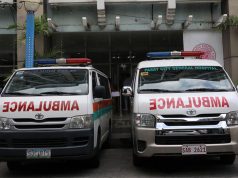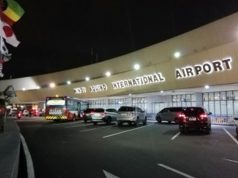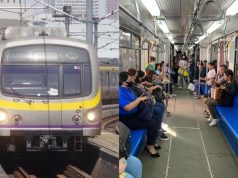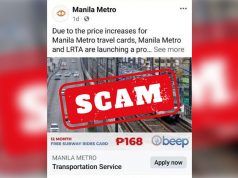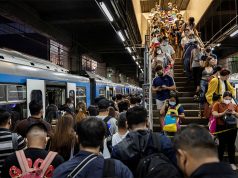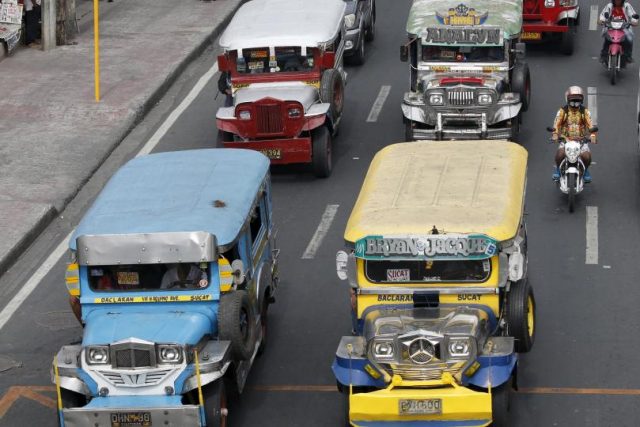
A transport official’s statement on public utility vehicle operators has revived the discussion on public transport utilities as livelihood in the traffic-plagued Philippines.
Transportation Assistant Secretary Mark de Leon said that the different modes of transportation competing for space on the roads result in an inefficient transport system.
De Leon said that the problem stems from how public transport is seen as a means of livelihood in the country and reminded operators of public utility vehicles that the government awards franchises for private operators to render public service.
“Mahirap na sabihin mo na this is a source of livelihood, kasi nga number one binigyan ka ng estado ng prankisa to operate a public transport service,” said de Leon during his briefing.
“Pag tiningnan natin ito as a means of livelihood, nandoon na nagbo-boil down ang problema natin sa efficiency. Nandoon na yung problema ng individual operator thinking na (kapag) nakuha ko na yung boundary ko, kailangan ko na umuwi,” he reportedly added.
Some Filipinos have reacted negatively to de Leon’s arguments.
I thought at first there was a typo in the headline or this was fake news. But no, a government official really said this.
This is just so callous. https://t.co/87lF4EjOfN
— Hazel Nutella (@1nutty_hazel) September 20, 2018
DOTr Asec De Leon, do you have time to learn? I urge you to watch/listen to Sen Grace Poe's interviews on her views re your agency's proposed jeepney modernization. You're too quick to speak and you speak without compassion!
— curated tweets (@curated_tweets) September 20, 2018
Sen. Grace Poe, who has been critical of the government’s transport modernization program, also criticized de Leon’s statements.
‘WALANG PAKIRAMDAM’: POE BLASTS TRANSPORT EXEC OVER REMARKS THAT DRIVING JEEPS IS NOT LIVELIHOOD #TrabahoPOE pic.twitter.com/dEZ79TAT8y
— GRACE POE (@SenGracePOE) September 20, 2018
Urban transport in the Philippines features an assortment of PUVs operated by private companies: buses; the traditional jeepneys; the ‘UV express’, which are usually converted SUVs and taxis.
The rise of transport network vehicle service companies has also given commuters more options though some have argued that this development has contributed to the rising volume of vehicles on the road in recent years.
While the Philippines’ transport sector is driven mostly by privately-owned companies licensed to operate by the government, the transport system in countries such as the United States is heavily regulated and overseen by the government.
Some developed Asian countries such as Singapore also award licenses to privately-owned companies to steer their transportation sector.
Even though their bus system is operated and regulated by the government as part of public service, those employed as bus drivers in the United States see their employment in the sector primarily as a livelihood.
Some cities in the U.S are currently facing a shortage of bus drivers after low pay convinced many drivers to seek better opportunities.
Economists and tech experts in the U.S also observed how working as a PUV driver is still seen as a livelihood by many, citing the possible job cuts that could take place should the technology for self-driving vehicles continue to develop.
Employment as a PUV driver in the world’s richest countries comes with good pay and perks. Bus drivers in Luxembourg earned an average of 76,108 euros in 2015, the equivalent of around P4.8 million under today’s exchange rates.
A significant part of the Philippines’ workforce is employed in the transportation sector.
Transport groups continue to oppose the government’s modernization program, saying that the planned phaseout of traditional jeepneys that have been in use for more than 15 years will cost the livelihoods of more than 500,000 drivers and operators who cannot afford to purchase the modernized model the government plans to offer.
The country’s transportation agencies plan to release up to P1.5 billion in financial assistance to those affected and offer alternative livelihood programs and training.




